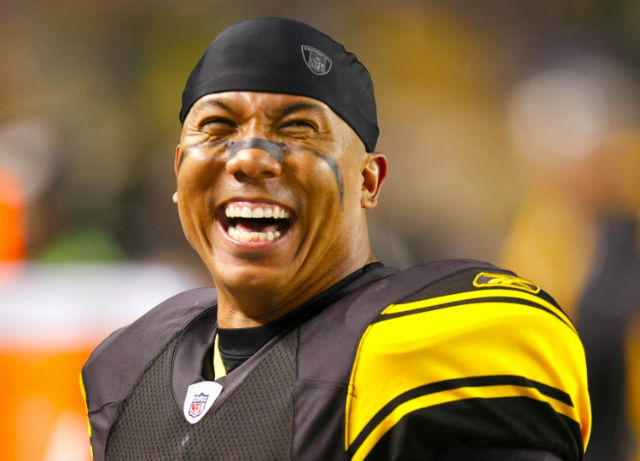get these nets
Veteran
Online critics claimed an Oakland pizzeria wasn't Black-owned. They were wrong
June 6, 2021
Justin Phillips

When Davina dikkens first placed a cardboard “Black-owned” sign in the window of her Oakland restaurant, Graffiti Pizza, she didn’t think that roughly a year later she would have to stand next to it and try to convince people that she is Black.
But this was the situation she found herself in on May 8, when dikkens said a Black father and son came to her pizzeria’s door. The father asked to speak with the owner after noticing the sign, which dikkens put up to show solidarity with the anti-racism protests that swept the country after George Floyd’s murder last summer.
“When I told him it was me, he told me he didn’t think I was Black,” dikkens recalled. “I told him I was. In fact, I even pulled my mask down. I said to him, ‘My father looks just like you’... They started laughing and walking away.”
Unfortunately for some multiracial Black people, having their Blackness dismissed is a familiar experience.
Graffiti received so many one-star Yelp reviews within 24 hours that Yelp placed an “Unusual Activity Alert” on the restaurant’s profile. The company does this when a business gets an influx of negative comments not related to customer experience. The toxic reviews fixated on the pizzeria’s disputed ownership.
dikkens is biracial. Her mother is Japanese, and her father is Black. She has always identified as Black.
Her situation is a microcosm of a deeper lack of recognition for people of African and Asian descent, often within the very communities that should be the first to reject outmoded definitions of race.
In the shadow of protests against police brutality and anti-Asian violence, this region is hearing a lot about Black-Asian relations. Yet the Bay Area often overlooks the complex — and intertwined — relationships between our communities.
That may be partly because of demographics. Last year, the Pew Research Center published an analysis of the country’s multiracial identity. It found that, based on 2018 U.S. Census Bureau data, roughly 6.2 million adults consider themselves to be two or more races. Twenty percent of those surveyed identified as both white and Asian. Only 2% were both Black and Asian.
In 2017, college students of Black and Asian descent tried bringing more attention to their experiences through a production called “Blasian Narratives.” The project explored the intersection of both cultures through spoken word performances and multimedia presentations. It toured in multiple cities, including in Oakland and Stanford.
Marlon Booker, an Oakland native, helped found Blasian Narratives, which became the “Blasian Project” in 2020. After a 2017 performance in Oakland, Booker said he heard from a Black Oaklander who objected to the performers discussing their African American roots. He said the criticism underscored the importance of sharing what it means to have both Black and Asian ancestry.
“Most people base their racial perceptions on phenotype, which makes it difficult for us because the way we identify sometimes can’t be conveyed with how we look,” Booker said.

Davina dikkens
Blasian entered the popular lexicon in the early 2000s. That was years after a young Tiger Woods was derided for identifying as “Cablinasian,” his way of describing his Black, white and Asian roots, but well before U.S. voters elected Kamala Harris to be our first vice president of African and South Asian descent. More recently, the term has been applied to arguably the world’s best tennis player, Naomi Osaka, and to Kyler Murray, the first person of Asian ethnicity to be drafted first by the NFL. His father is Black.
Growing up as a Black man in this country, I’ve seen how my own people can gatekeep Blackness. I’ve done it myself. But thinking Blackness is rooted in how we look is a misunderstanding of our history. African people were displaced throughout the world as a result of the slave trade. We’ve spent generations intersecting with people outside of our motherland. There is no one way to be Black.
dikkens said she wasn’t raised adhering to any hierarchy of Blackness.
“I was blessed to grow up enriched with Japanese culture and I keep that close to my heart along with all the culture and pride I received and I hold from my Black side,” dikkens told me. “I’ve always known I’m both (races), but when looking in the mirror I didn’t look like my Asian family. ... Racist people have always considered me Black, so I’ve experienced my share of discrimination based on the color of my skin, which shaped me to be even more proud of my heritage.”
I recently walked by Graffiti Pizza. Some people, including a few Black folks, stood outside the door deciding what to order. dikkens was busy in the dining room helping to facilitate orders. A new sign, a shiny plaque with the words “Black-owned” in graffiti script, hung in the window — where it belonged
Writer

June 6, 2021
Justin Phillips

When Davina dikkens first placed a cardboard “Black-owned” sign in the window of her Oakland restaurant, Graffiti Pizza, she didn’t think that roughly a year later she would have to stand next to it and try to convince people that she is Black.
But this was the situation she found herself in on May 8, when dikkens said a Black father and son came to her pizzeria’s door. The father asked to speak with the owner after noticing the sign, which dikkens put up to show solidarity with the anti-racism protests that swept the country after George Floyd’s murder last summer.
“When I told him it was me, he told me he didn’t think I was Black,” dikkens recalled. “I told him I was. In fact, I even pulled my mask down. I said to him, ‘My father looks just like you’... They started laughing and walking away.”
Unfortunately for some multiracial Black people, having their Blackness dismissed is a familiar experience.
Graffiti received so many one-star Yelp reviews within 24 hours that Yelp placed an “Unusual Activity Alert” on the restaurant’s profile. The company does this when a business gets an influx of negative comments not related to customer experience. The toxic reviews fixated on the pizzeria’s disputed ownership.
dikkens is biracial. Her mother is Japanese, and her father is Black. She has always identified as Black.
Her situation is a microcosm of a deeper lack of recognition for people of African and Asian descent, often within the very communities that should be the first to reject outmoded definitions of race.
In the shadow of protests against police brutality and anti-Asian violence, this region is hearing a lot about Black-Asian relations. Yet the Bay Area often overlooks the complex — and intertwined — relationships between our communities.
That may be partly because of demographics. Last year, the Pew Research Center published an analysis of the country’s multiracial identity. It found that, based on 2018 U.S. Census Bureau data, roughly 6.2 million adults consider themselves to be two or more races. Twenty percent of those surveyed identified as both white and Asian. Only 2% were both Black and Asian.
In 2017, college students of Black and Asian descent tried bringing more attention to their experiences through a production called “Blasian Narratives.” The project explored the intersection of both cultures through spoken word performances and multimedia presentations. It toured in multiple cities, including in Oakland and Stanford.
Marlon Booker, an Oakland native, helped found Blasian Narratives, which became the “Blasian Project” in 2020. After a 2017 performance in Oakland, Booker said he heard from a Black Oaklander who objected to the performers discussing their African American roots. He said the criticism underscored the importance of sharing what it means to have both Black and Asian ancestry.
“Most people base their racial perceptions on phenotype, which makes it difficult for us because the way we identify sometimes can’t be conveyed with how we look,” Booker said.

Davina dikkens
Blasian entered the popular lexicon in the early 2000s. That was years after a young Tiger Woods was derided for identifying as “Cablinasian,” his way of describing his Black, white and Asian roots, but well before U.S. voters elected Kamala Harris to be our first vice president of African and South Asian descent. More recently, the term has been applied to arguably the world’s best tennis player, Naomi Osaka, and to Kyler Murray, the first person of Asian ethnicity to be drafted first by the NFL. His father is Black.
Growing up as a Black man in this country, I’ve seen how my own people can gatekeep Blackness. I’ve done it myself. But thinking Blackness is rooted in how we look is a misunderstanding of our history. African people were displaced throughout the world as a result of the slave trade. We’ve spent generations intersecting with people outside of our motherland. There is no one way to be Black.
dikkens said she wasn’t raised adhering to any hierarchy of Blackness.
“I was blessed to grow up enriched with Japanese culture and I keep that close to my heart along with all the culture and pride I received and I hold from my Black side,” dikkens told me. “I’ve always known I’m both (races), but when looking in the mirror I didn’t look like my Asian family. ... Racist people have always considered me Black, so I’ve experienced my share of discrimination based on the color of my skin, which shaped me to be even more proud of my heritage.”
I recently walked by Graffiti Pizza. Some people, including a few Black folks, stood outside the door deciding what to order. dikkens was busy in the dining room helping to facilitate orders. A new sign, a shiny plaque with the words “Black-owned” in graffiti script, hung in the window — where it belonged
Writer








 " boo hoo talk about first world problems.
" boo hoo talk about first world problems.